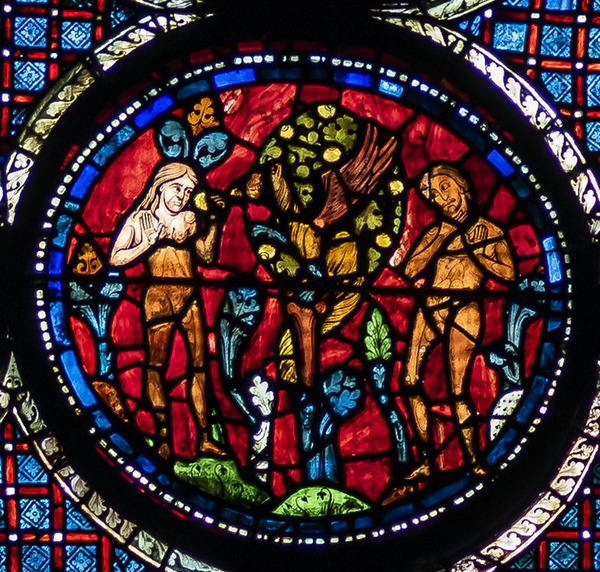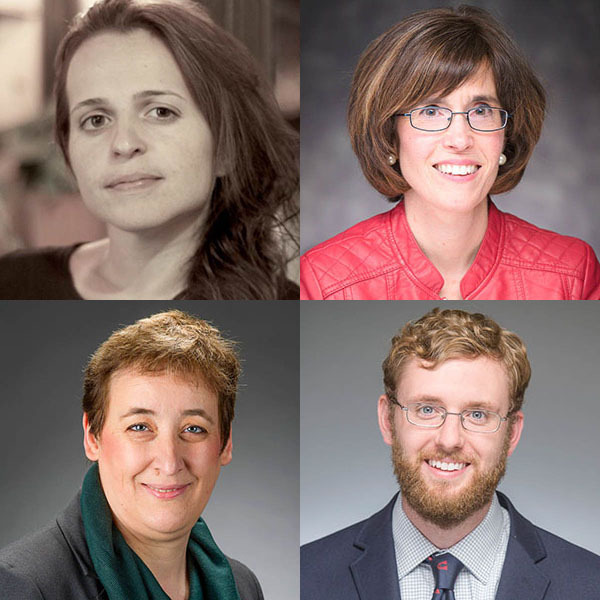
On March 7-9, 2022, the University of Notre Dame will hold its first joint workshop with the Israel Institute for Advanced Studies (IIAS), one of the premier such research institutes in the world, at the Jerusalem Global Gateway in Tantur. This project, which is co-sponsored by the Nanovic Institute for European Studies, is entitled “Purity and Pollution in Christian, Muslim and Jewish Societies and Thought from Late Antiquity to the High Middle Ages.” It is designed to study European Christian social, political, and religious aspects of purity and pollution from a comparative and interdisciplinary perspective. Seven Notre Dame faculty members—all of whom are fellows of the university's Medieval Institute—will participate in the workshop. Four of these scholars are also faculty fellows of the Nanovic Institute.
The issue of purity and pollution constitutes one of the central aspects, not only of European Christianity, but of all three monotheistic religions, a centrality which was even more pronounced in the historical period that will be examined by this workshop. From Late Antiquity to the Central Middle Ages (around the third to thirteenth centuries), purity and its antithesis, pollution, not only lay at the heart of religious life and belief, they were also dominant cultural themes in Christian, Muslim, and Jewish societies. Purity and pollution were essential elements in issues of moral conduct, law, theology, liturgy, statecraft, and environment, and were ways of articulating reality, expressing religious and social aspirations, and drawing increasingly more subtle conceptual borders between social categories and groups. This workshop aims to enrich its examination of purity and pollution in European Christianity, both Catholic and Orthodox, with the addition of several studies presenting the Jewish and Muslim perspectives on this essential theme during the same historical period.
Four Nanovic Institute faculty fellow will present their research to the workshop:

Nina Glibetić, assistant professor of theology, will be presenting her research on “A Levitical Revival in Byzantium: Clergy, Women, Purity, and Sacred Space in Late Medieval Liturgy.” Through a detailed study of liturgical manuscripts in Greek and Slavonic, Glibetić will examine the revival of Levitical concerns for ritual impurity in the late-medieval Byzantine tradition, identifying the emergence of new prayers and rites intended for the ritual preparation and purification of clergy and laity.
Mary Keys, associate professor of political science, will speak on “‘Blessed Are the Pure of Heart:’ A Beatitude in Late Classical and Medieval Christian Thought.” Keys’ paper explores a tradition of commentary on the sixth beatitude in Latin late antiquity and medieval times. Her paper will focus on the thought of Augustine, Bernard, and Aquinas, illustrating the social and political implications of their understandings of purity of heart, putting their scriptural commentaries in dialogue with their writings on social life and the virtues of the good human being, as a member of society and citizen, and in political and religious leadership positions.
Hildegund Müller, associate professor of classics and senior liaison for research and curricular affairs at the Nanovic Institute, will address “Purity and Imperfect Virtue in the Post-Constantinian Era.” Her paper will discuss the teachings on virtue in the sermons of a group of North Italian preachers from the fourth and fifth centuries. These sermons offer rich material for studying the reorientation toward different ways of approaching purity and perfection that occurred after the so-called Constantinian shift.
Alexis Torrance, the Archbishop Demetrios Associate Professor of Byzantine Theology, will speak on “Ecclesial Purity in Symeon the New Theologian and the anti-Messalian Trials of Middle Byzantium.” This paper considers the mixed reception by modern scholars of the prolific and influential Byzantine thinker Symeon the New Theologian (949–1022), associated by some with fringe and condemned Messalian thought, but celebrated by Byzantine Christian tradition (and beyond) as a mouthpiece of true Christian piety. Focusing on the ecclesial (especially sacramental) dimension of Symeon’s rhetoric, Torrance will argue that this squares rather awkwardly with the claim that he represents Messalian fanaticism tout court.
These Nanovic faculty fellows will be joined in the workshop by other colleagues from Notre Dame, including Jeremy Brown, assistant professor of theology, who will speak on “Breaking the Spirit of Impurity: Defilement and the Structure of Moral Conduct in Medieval Castilian Kabbalah,” Gabriel Radle, the Rev. John A. O'Brien Assistant Professor of Theology, presenting his research on “Sexual Deflowering and Ritual Impurity in Medieval Judaism and Christianity,” and Deborah Tor, associate professor of history and workshop convener on behalf of the IIAS research group, who will discuss “The Search for Religious Purity in the 11th and 12th Century Middle East.”
Scholars presenting from the IIAS include Jennifer Davis (associate professor of history at the Catholic University of America), Yaniv Fox (senior lecturer in history at Bar-Ilan University), Angela Kinney (researcher in the Institute of Classical Philology, Medieval and Neo-Latin Studies at the University of Vienna), Adam Silverstein (professor in Islamic and Middle Eastern studies at the Hebrew University of Jerusalem), and Daniella Talmon-Heller (professor of Middle Eastern studies at Ben-Gurion University of the Negev). More information on these presentations and the workshop as a whole can be found on the workshop website.